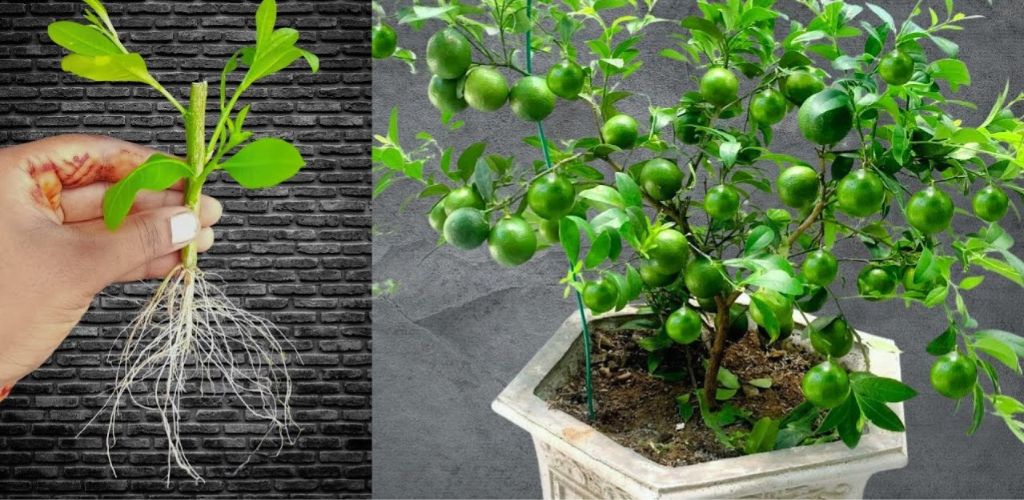Water and nutrient requirements of the potted lemon tree
Lemon trees have relatively high water requirements, especially when grown in pots.
It is important to water them regularly and make sure they do not drown. In general, watering every two to three days is sufficient during the growth and fruiting phase.
Be sure to reduce watering in winter when the plant is dormant.
When it comes to nutrients, lemon trees need a lot of nitrogen to grow well and produce fruit. Choose a specific fertilizer for citrus fruits that is rich in nitrogen, potassium and phosphorus.
You can also add compost or well-rotted manure to your growing medium to provide additional nutrients.
Pruning and caring for your potted lemon tree
Pruning the lemon tree is an important step to ensure good fruiting and prevent the tree from becoming too bulky.
Here are some tips on how to properly prune your lemon tree:
- Prune dead, damaged or diseased branches all year round.
- At the end of winter, prune branches that cross or grow into the tree.
- Remove the shoots that grow at the base of the trunk,
- Ventilate the foliage by thinning out branches that are too dense.
In addition to pruning, remember to regularly check the health of your lemon tree. If infested with aphids, scale insects or other pests, treat it with a natural insecticide.
You can also spray the leaves with soapy water to kill pests.
Pollination and fruit formation.
Lemon trees are self-fertile trees, meaning they can be pollinated without the need for another tree.
However, hand pollination can help you achieve better fruit set. To do this, simply pick up pollen from the stamens of a flower with a brush or a cotton swab and then place it on the pistil of another flower.
Repeat the process on several flowers to increase your chances of success.
The fruiting of potted lemon trees can be capricious and depends on many factors, such as: B. the variety, the age of the tree, the growing conditions and care.
However, with a little patience and attention, your lemon tree should provide you with beautiful, juicy and tasty fruit.
If you follow these tips, you should be able to successfully grow and care for a potted lemon tree. Whether you enjoy its fruits, its evergreen foliage or its intoxicating scent – the lemon tree is a true asset to your garden or terrace. So don’t hesitate, go on the adventure and enjoy your own lemons!

